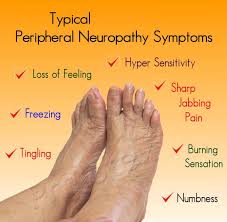How To Stop Sensitive Teeth After Cleaning? Solutions
Sensitive teeth after cleaning can be a common issue for many individuals, often resulting from the cleaning process itself or underlying conditions that the cleaning procedure may have exacerbated. The good news is that there are several strategies and solutions to help mitigate or entirely stop sensitivity after a dental cleaning. Understanding the causes and applying the right remedies can make a significant difference in improving oral comfort and overall dental health.
Causes of Sensitive Teeth After Cleaning
Before diving into the solutions, it’s essential to understand why teeth might become sensitive after a cleaning. Some common reasons include:
- Removal of Plaque and Tartar: During a professional cleaning, the dentist or hygienist removes plaque and tartar from the teeth, both above and below the gum line. This process can sometimes expose dentin, the layer of the tooth beneath the enamel, leading to sensitivity.
- Gum Recession: If gums have receded, the roots of the teeth may be exposed. Since the roots do not have enamel, they can be very sensitive.
- Enamel Erosion: The enamel might be worn away due to acidic foods, brushing too hard, or grinding teeth, making teeth more sensitive.
- Cracks in Teeth: Small cracks in the teeth can allow bacteria and food particles to penetrate, causing irritation and sensitivity.
Solutions for Sensitive Teeth After Cleaning
Fortunately, there are several effective ways to manage and reduce sensitivity after a dental cleaning:
- Desensitizing Toothpaste: Using a toothpaste specifically designed for sensitive teeth can help block the dentinal tubules in the teeth, reducing sensitivity. These toothpastes usually contain potassium nitrate or strontium chloride. It may take a few weeks of regular use to see noticeable results.
- Fluoride Gel or Varnish: Applying a fluoride gel or varnish can help strengthen tooth enamel, reducing sensitivity. This is often applied by a dentist during a cleaning but can also be found in some over-the-counter products.
- Soft-Bristled Toothbrush and Gentle Technique: Brushing with a soft-bristled toothbrush and using a gentle technique can prevent further wear on the enamel and gums.
- Mouthwash: Some mouthwashes contain ingredients that help desensitize teeth. Look for a mouthwash with the ADA Seal of Acceptance, which indicates it has met the American Dental Association’s standards for safety and effectiveness.
- Dietary Changes: Avoiding or reducing consumption of acidic foods and drinks can help prevent further erosion of the enamel.
- Regular Dental Check-Ups: Regular cleanings and check-ups can help identify and address any issues before they become severe, potentially reducing the occurrence of sensitivity.
- Bonding or Fillings: If the sensitivity is due to a crack or decay, a dentist may recommend bonding or a filling to cover the exposed area.
- Gum Graft: For sensitivity due to gum recession, a gum graft might be necessary to cover the exposed root surface.
- Dental Crowns: In cases where sensitivity is severe and due to a compromised tooth structure, a dental crown can provide full coverage and protection.
Natural Remedies
While these may not replace professional dental advice or treatments, some natural remedies can offer temporary relief or complement other treatments:
- Salt Water Rinse: Rinsing with warm salt water can help reduce inflammation and heal gums.
- Cloves: Clove oil has been traditionally used for its analgesic properties. A cotton ball soaked in clove oil can be applied to the sensitive area.
- Aloe Vera: Aloe vera gel has anti-inflammatory properties and can be applied to the gums and teeth to reduce sensitivity and inflammation.
Conclusion
Sensitive teeth after a dental cleaning can be uncomfortable, but there are numerous solutions available, ranging from simple changes in oral hygiene practices to more complex dental procedures. It’s crucial to consult with a dentist to determine the underlying cause of the sensitivity and develop a personalized plan to address it. With the right approach, individuals can significantly reduce or eliminate sensitivity, enjoying better oral health and comfort.
How long does it take for sensitivity to go away after a dental cleaning?
+Sensitivity after a dental cleaning can vary from person to person. In some cases, it may resolve on its own within a few days to a week. However, if the sensitivity persists or is severe, it’s best to consult a dentist to rule out any underlying issues.
Can I use any toothpaste for sensitive teeth, or are there specific ingredients I should look for?
+For sensitive teeth, look for toothpaste containing potassium nitrate or strontium chloride, as these ingredients help block the dentinal tubules and reduce sensitivity.
Are there any home remedies that can help reduce tooth sensitivity immediately?
+Yes, rinsing with salt water or applying a cotton ball soaked in clove oil to the sensitive area can provide temporary relief from tooth sensitivity.

